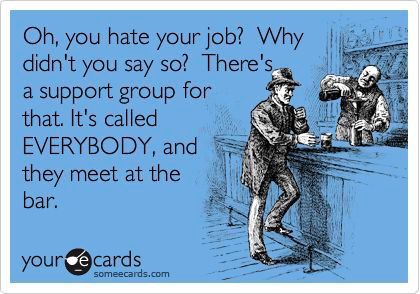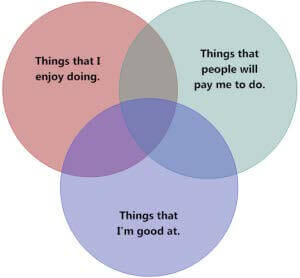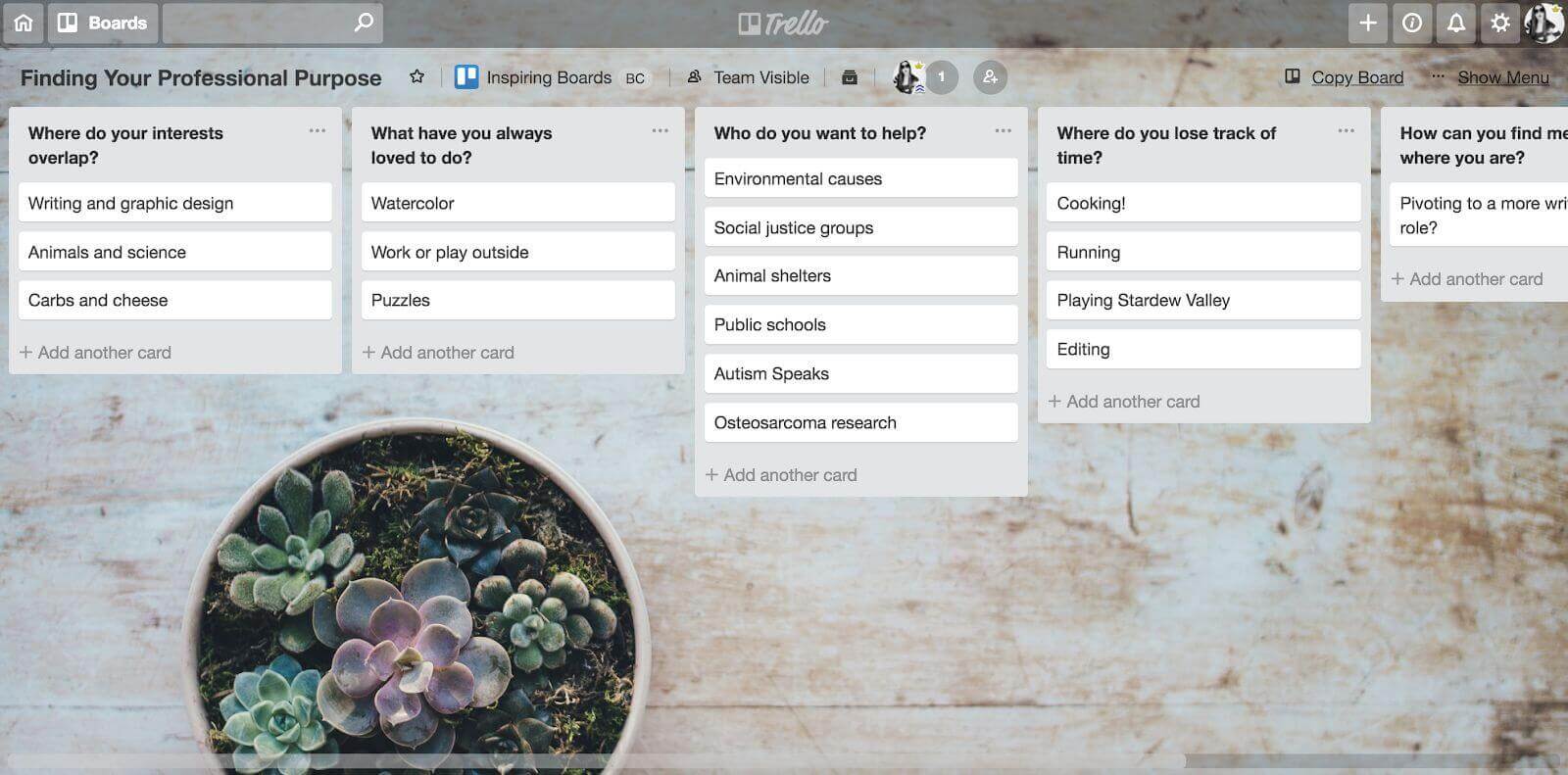We all have (and perhaps envy) a friend who seems to love their job. You know, the person who “whistles while they work,” so to speak—who seems to skip merrily to the office, is happy to put in overtime, who claims they’d still be an accountant or a teacher even if they didn’t get paid.
Ok, so this friend may not exist. Work is supposed to be work! Still, the goal of finding a career that is both a source of happiness and fills our bank accounts is not as lofty as it once seemed.
Most of us spend the majority of our waking lives at work. It’s not too much to ask that we feel as if we’re working toward something more than a paycheck alone. How then, do we go about finding fulfilling work?
Research shows that happiness at work has much less to do with compensation and much more to do with overall well-being at the office. When career purpose is clear and job satisfaction is high, it can greatly contribute to our overall contentment and self-esteem.
Still, if you’re dreading Monday every week, you’re not alone.
More often than not, jobs are a source of stress and dread rather than passion and purpose. The modern workforce is switching jobs and feeling stuck more often than in past generations.
Employees are asking for their careers to be a source of meaning and a reflection of the values about which they care the most. And the rewards for doing so—from engagement at the office to job satisfaction and loyalty—are beneficial to both individuals and companies alike.

What exactly, then, is the link between knowing your purpose and performance in your job? After all, who doesn’t want to be happier and more productive?
Having Purpose Leads To Motivation
Research suggests that as much as 72% of U.S. based workers do not possess a sense of purpose in their roles at work. A Psychology Today article made a parallel between Maslow’s hierarchy of needs and ‘workplace actualization,’ arguing that a sense of purpose comes after meeting security and physiological needs. Maslow’s theory is that conditions like safety and hunger must be met before feelings of esteem and belonging can be reached.
In the workplace, this translates to a hierarchy of how one views their job: as a means to an end, as a career, or as a calling. Most workers appear to be hyper-focused on the basics, instead of striving for higher needs like passion and creativity.
A study on the essential elements of employee well-being defines purpose as “satisfaction with daily activities and the motivation to achieve your goals.” More so than location or even office culture, it’s markers of social relationships, health, prosperity, and happiness at work — including a sense of purpose — that take precedence.
It makes sense that the clearer you are on your purpose (and the happier you are at work,) the more motivated you are to work hard at it — and to stay focused when inevitable bumps in the road come along.
Narrowing in on ‘Millennials at Work,’ surveys indicate that a life well lived includes feeling emotionally connected to your job. To do so, we need to understand not just the ‘what’ behind a job’s function, but the ‘why.’ Some employers seek to provide this, but it can also be up to the individual to contemplate a larger perspective. Employees need to know not just what they’re being paid for, but who their work is serving, and what specific role they play in reaching the company’s goals.
In other words, it makes it much easier not to hit the snooze button each morning when you’re excited about what you’re getting out of bed to accomplish.
Time Flies When You’re Having Fun
Psychologists have linked purpose to ‘flow,’ or being so absorbed in what you’re doing that you disregard what’s around you. We get into a flow state, or ‘being in the zone,’ when intensely focused on and involved in the task of hand — sometimes even losing track of time.
Getting into flow while working is most often attributed to intrinsic motivation. It is more likely to present in people with a strong sense of purpose, which in turns provides a greater sense of overall well-being. “The more flow we experience, the happier we feel,” notes author and psychology Ph.D Steve Taylor.
Having a sense of purpose also contributes to a focus on intrinsic goals, such as personal growth, autonomy, and accomplishment, as opposed to external pursuits like money and status. Working toward intrinsic goals increases your self-confidence, which grows as you rise to meet challenges (which you’re more apt to do when you have a sense of purpose.)
Happiness Leads To Productivity
Being motivated, fulfilled, and accomplished…sounds great! But is there a real link between being happy and being productive?
A University of Chicago journal made the scientific link between happiness and higher rates of productivity. They found a causal relationship between feelings of well-being and overall performance.

“Meaningful careers emerge when one can see a connection between one’s own purpose and the role one plays in a given company. This is true both across generations and across industries. Ultimately, finding real purpose makes people willing to work harder, more diligently, and with greater passion,” notes Karl Moore, McGill and Oxford University professor and author of How To Increase Your Performance By Finding Your Purpose.
How Do You Find Purpose In Your Professional Life?
Here’s the good news: You don’t find your purpose, you build it. HBR writes that “almost any work can possess remarkable purpose.” It doesn’t matter whether you’re a plumber, an artist, or a banker — it’s about identifying how you’re utilizing your skills to help others.

Here are some questions to get you thinking about that larger perspective, plus a sample Trello board below that helps you add them into context:
- Where do your interests overlap?
Let your imagination run wild. Do you love animals and also science? Good at writing and like to travel? Analytical and like coaching others? There’s no end to the number of combinations that could lead to your dream job. (Just make sure someone wants to pay you for that combination.) - What have you always loved to do?
Again, it’s important to be completely honest with yourself and not hold back when asking this question. For many people, knowing what their purpose could be in their career connects to what comes easily to them and/or what they once really loved to do as a child.Did you used to build cities with your Legos? Counsel your dolls? Win every Monopoly game? Use your answers as cues for your inner voice may be trying to tell you to pursue.
- Who do you want to help?
It is easy to get caught up in the navel-gazing that is contemplating your life’s purpose. Consider instead that for most people, it’s the impact they want to have on the world or the help they hope to offer others that brings meaning to their daily lives.Perhaps there’s a cause you want to advance, or a group of people that really means something to you. Searching for a deeper motivation outside of yourself is another great clue to identifying your professional purpose.
- Where do you lose track of time?
Do you remember the last time you felt truly in the moment? Maybe you were cooking, gardening, or talking on the phone with a friend.Perhaps you were running, writing, or teaching. Whatever it is that makes time fly for you, don’t write it off as just a hobby! How could you incorporate elements of that activity, even if it’s as simple as being present with that single task, into your work?
- How can you find meaning where you are?
Lastly, searching to align your work with your passions may mean a complete career change for you…but it doesn’t have to. It could be as simple as exploring new roles in your company, or even changing your approach or speaking to your boss about how you work in your current position.
These are huge, important questions that often require longer-term thoughtfulness to really process completely. The good news is: They’re easily translatable into a Trello board! Make each question a list title, then as you think of items, add them as cards under their respective list. Here’s a sample:
The more you know about yourself, and the less afraid you are to explore the big questions about your life and its meaning, the more you are able to go after the sense of well-being you seek. If that includes work that’s greater aligned with your true purpose — they’re questions worth asking.
Good or bad, we’d love to hear your thoughts. Find us on Twitter (@trello) or write in to support@trello.com
Next: Push Off Flaws, Be Less Productive: How To Stop Making Excuses











































